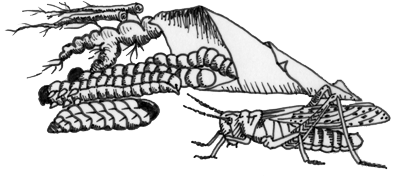One hundred years ago, the diet of people in our local area was probably much better and more varied than it is today. This is not because people had more money or time. It was partly because they used many traditional foods in their diet. They also processed their own foods. Today, people often buy staple foods that have been processed such as ‘white’ rice, ‘white’ bread and porridge. Processing removes the dark outer layer of grain, which contains a lot of vitamins and protein.
Most areas have traditional foods that people gather and eat. Examples of traditional foods that are nutritious include termites, grasshoppers, caterpillars, locusts, flying ants, wild birds and the leaves and roots of wild plants. These are often very high in protein and vitamins and help to improve the diet. Increasingly, however, people consider that these are of little value and place higher priority on more ‘western’ foods. Also, as people move to towns and cities, they are unable to gather such foods.
Discussion
- What kinds of traditional foods are eaten in our area?
- How are these foods prepared and used?
- Are there other kinds of traditional foods that are still available, but no longer eaten? What are the reasons for this?
- Traditional foods are often only available for a very short time. For example, flying ants may appear on only a few days each year. How could these kinds of foods be preserved so they can be eaten at other times?








